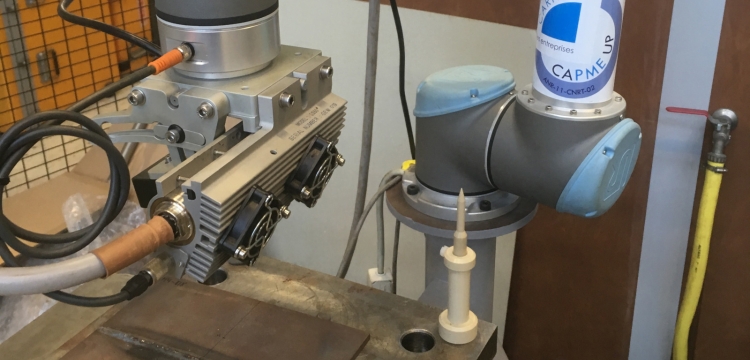From X-ray diffraction to incremental hole drilling


Residual stress determination
Your expectations
You want to determine residual stresses in order to:
- Develop or test a manufacturing process:
- Raw part
- Heat or thermo-chemical treatment (tempering, case hardening, etc.)
- Machining (grinding, milling, turning, etc.)
- Work treatment (shot peening, roller-burnishing, etc.)
- Compare several processes concerning fatigue strength or stress corrosion.
Our solutions
Definition and implementation of suitable protocols:
- Advice and support for developing an experimental design
- Assistance in drafting specifications
Surface or in depth analysis:
- X-ray diffraction method (non-destructive)
- Incremental hole drilling method (destructive)
Working with large instruments:
- Neutron radiation method (non-destructive)
- Synchrotron radiation method (non-destructive)
Assistance in exploiting and capitalising on the results.
Your benefits
- Comprehensive management of your experiment requirements
- Project monitoring adapted to your demands
- Standardised tests (EN15305-2009 and ASTM E837-2008)
- Services of a provider with proven skills (35 years of capitalising on experience) that is certified both by approved organisations (ISO 9001) and its customers (Safran, Airbus, Renault, PSA, etc.)
- Access to Cetim’s manifold skills to help you optimise your products and processes.
Case studies
Documentation
Residual stress determination

